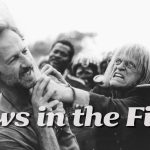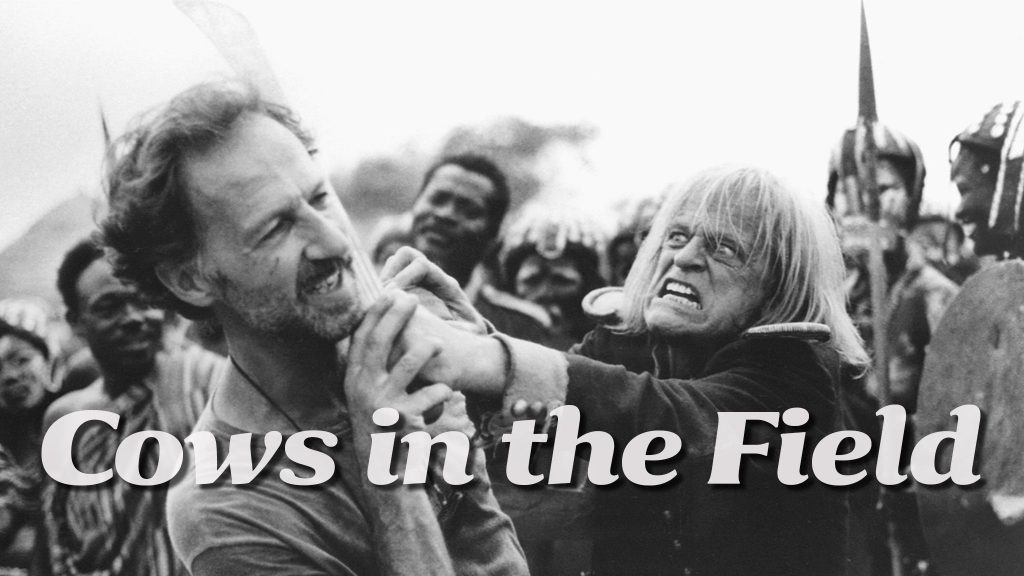
What follows is a guest post by Justin Khoo (MIT).
Some of my most cherished memories of graduate school are from a screening room of some kind – sometimes the Whitney Humanities Center, where I was lucky enough to see film prints of 2001: A Space Odyssey, The Exorcist, and Mulholland Drive (among many others), but more often some random classroom in Yale’s Hall of Graduate Studies (RIP!), which became, for one night, a place to gather to enjoy and discuss whatever movie one of us had rented from the library.
These nighttime excursions were both social and intellectual. Friends versed in film history and theory would bring a depth to our conversations I had never experienced before when talking about movies. They introduced me to Antonioni, Bergman, Fellini through Blow Up, Through a Glass Darkly, and I Vitelloni, respectively. But these films were screened alongside less critically revered fare like Step Brothers, Blackballed: The Bobby Dukes Story, and (on heavy rotation) David Lynch’s Dune. No one saw fit to draw any important distinction between how we talked about or appreciated these films – as far as we were concerned, Brant Sersen’s choice to depict the world of competitive paintballing with deadpan seriousness was as artistically interesting as Ingmar Bergman’s choice to start Persona with a projector running through seemingly unrelated reels of film.
That same open-minded curiosity is something we aim to channel with Cows in the Field, a podcast I host with my wife, Laura Khoo (whose background is in art history). In each episode, we discuss a popular film, aiming to think through the film’s significance and how it can be explored and analyzed philosophically. That may involve thinking about the nature of free will and whether there could be facts about what free creatures would have done in situations in which they never find themselves (so-called Middle Knowledge) – the central issue explored in Steven Spielberg’s Minority Report, based off of a Phillip K. Dick novella. Sometimes, it involves thinking about whether a film can have a political outlook and, if so, what it might be – something we get into in our discussion of Robert Zemeckis’s divisive Best Picture winner Forrest Gump. Often, though, it’s just an opportunity to think about life and our choices, as we do in our discussion of Office Space (which my parents joined as guests!).
In what follows, I’ll highlight seven episodes that might appeal to philosophers. If you like the podcast, check out our back catalog of more than 60 episodes and our guest list, which includes academics, film critics, and filmmakers.
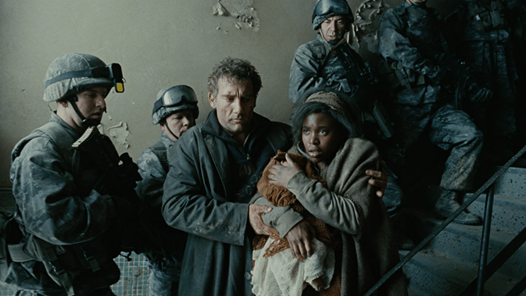
1. Children of Men (ft. Vishal Dave)
The premise of Children of Men, Alfono Cuarón’s prescient dystopian sci-fi masterpiece, is that in the near future, women have collectively become infertile, leading to disaffection and chaos as the final generations of humans fight over a planet they will soon have to cede back to nature. In our episode, an old friend of mine, Vishal Dave, joins us to discuss whether facing the imminent end to humanity would seriously undermine the value of our current projects or activities. We discuss Samuel Scheffler’s book Death and the Afterlife and how the film anticipates the kinds of social destabilization that inevitably await us in the face of human-made climate changes.
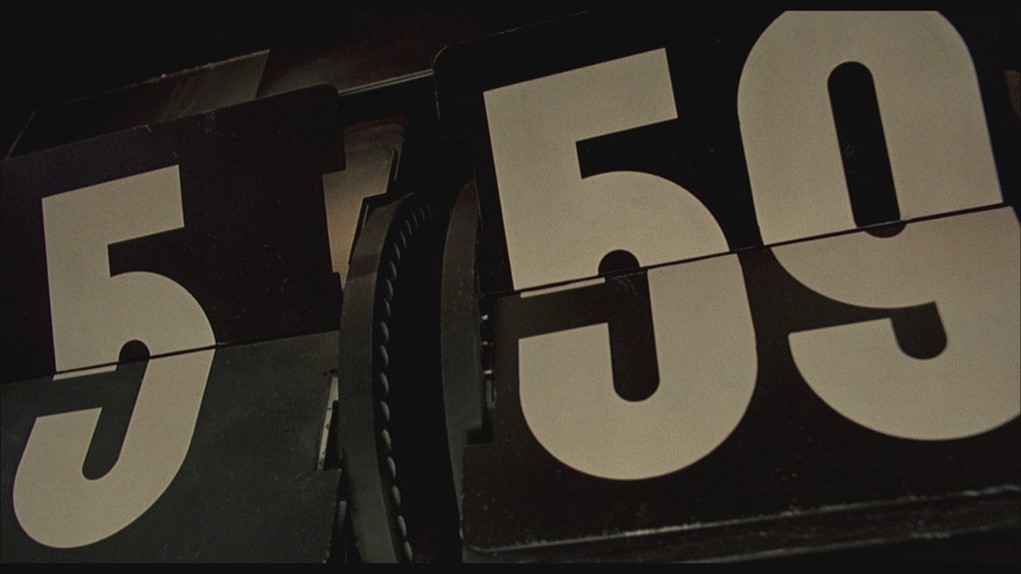
2. Groundhog Day (ft. Kieran Setiya)
The plot of Groundhog Day, Harold Ramis’s irreverent nineties classic, has become synonymous with the day itself: On February 2, a man (Phil, played by Bill Murray) becomes stuck in a time loop, forced to live out the same 24-hour period over and over again without end. That simple idea becomes an opportunity for reflection on value and what matters, and we talk with Kieran Setiya about what the movie says about midlife crises, grief, faith, and flourishing. Recorded in the height of the pandemic, we couldn’t help but draw parallels between Phil’s situation and the experience of living out the same day over, and over, and over…
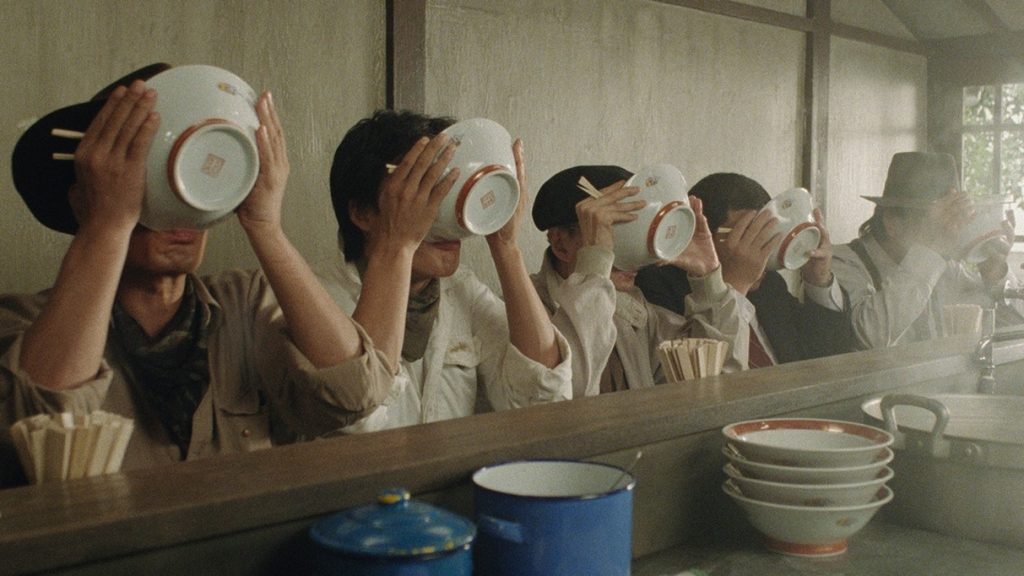
It’s fitting that the movie we talked with Nick Riggle about was called “The first Japanese noodle Western,” because that tagline is awesome and Nick is the author of the book On Being Awesome. We consider how both film and cuisine combine elements of high and low art and explore how the film’s chaotic non-sequiturs add up to one eclectic and inimitable moviegoing experience.
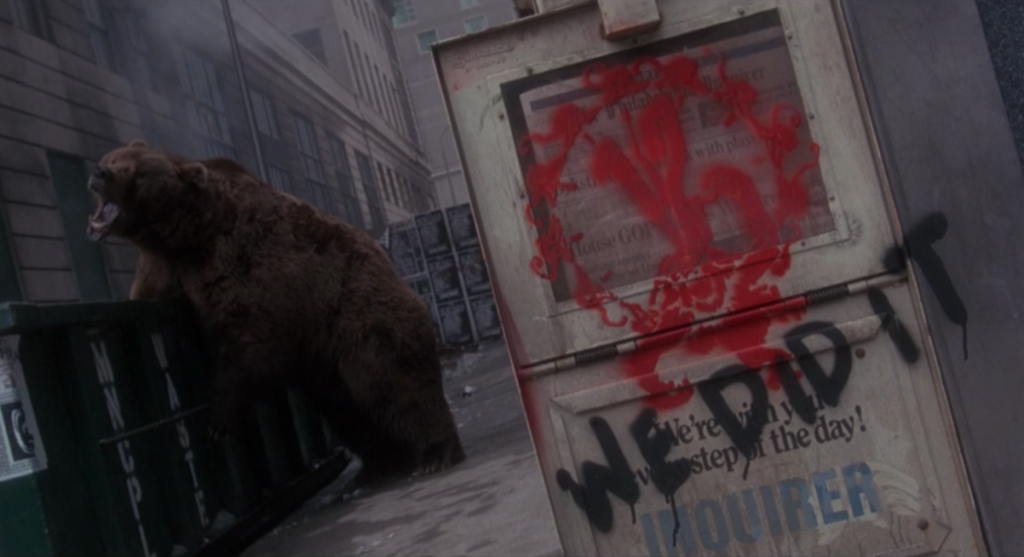
In the near future, a deadly virus is released, killing off 80% of the world’s population and driving the survivors underground. In the hopes of finding a cure, they develop technology that allows them to send prisoners back in time to collect information about the virus. James Cole (Bruce Willis) is nominated to participate, but begins to lose his mind as he zips back and forth between times. We talk with Barry Lam about various theories of time travel and what makes 12 Monkeys a consistent, yet still maddening, film, about not just metaphysics but also the futility of political action and the thin line between sanity and knowing too much.

5. The Matrix Resurrections (ft. David Chalmers)
The fourth installment in the deeply philosophical Matrix franchise was divisive, but raised interesting questions about what we want from franchise entertainment and popular films. We talk with David Chalmers about his book Reality+ and his arguments that what happens in virtual worlds populating movies like The Matrix is just as real as what happens in the worlds that embed those virtual worlds. But, if that’s right, then it seems we may have obligations to virtual individuals, and ought to care about them, and so on. We wonder whether our ordinary concepts can bear such weight, and then bring in critic Emily St. James to make a powerful pitch for the film itself.

6. The Usual Suspects (ft. Erich Hatala Matthes)
At the heart of Bryan Singer’s excellent neo-noir The Usual Suspects is a massive deception carried out by its lead actor Kevin Spacey, which makes re-watching this film challenging in many respects given that both men have been met with widespread and credible accusations of sexual assault. To explore how we should feel about the film in light of these facts, we talk with Erich Hatala Matthes about his book, Drawing the Line. We consider whether the film’s aesthetic value is affected by the immoral behavior of its creators, and whether we should refrain from watching and enjoying it because of these tainted associations.

The Twilight films earned billions of dollars at the box office, and yet are famously maligned as terrible by critics and moviegoers alike. We sit down with Matt Strohl to consider whether there is room to love such films in virtue of the same characteristics that many people find so unpleasant about them. Matt talks through the theory of what makes a movie “so bad it’s good” that he argues for in Why it’s OK to Love Bad Movies, articulates why he loves Twilight and its sequels, and explains how being open to loving conventionally bad films may enrich our lives.
Justin Khoo is an associate professor of philosophy at MIT, where he works on philosophy of language.

